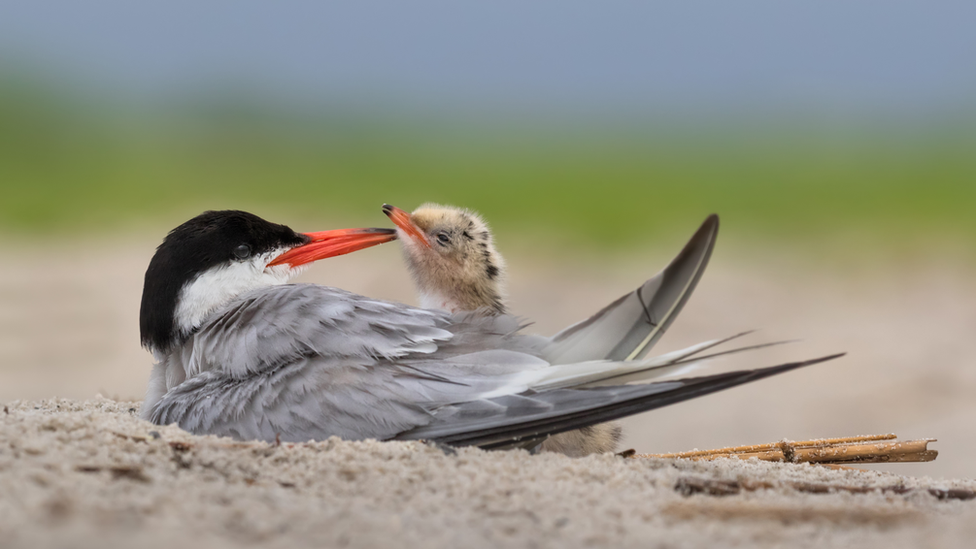Bird flu detected in three wild birds in NI
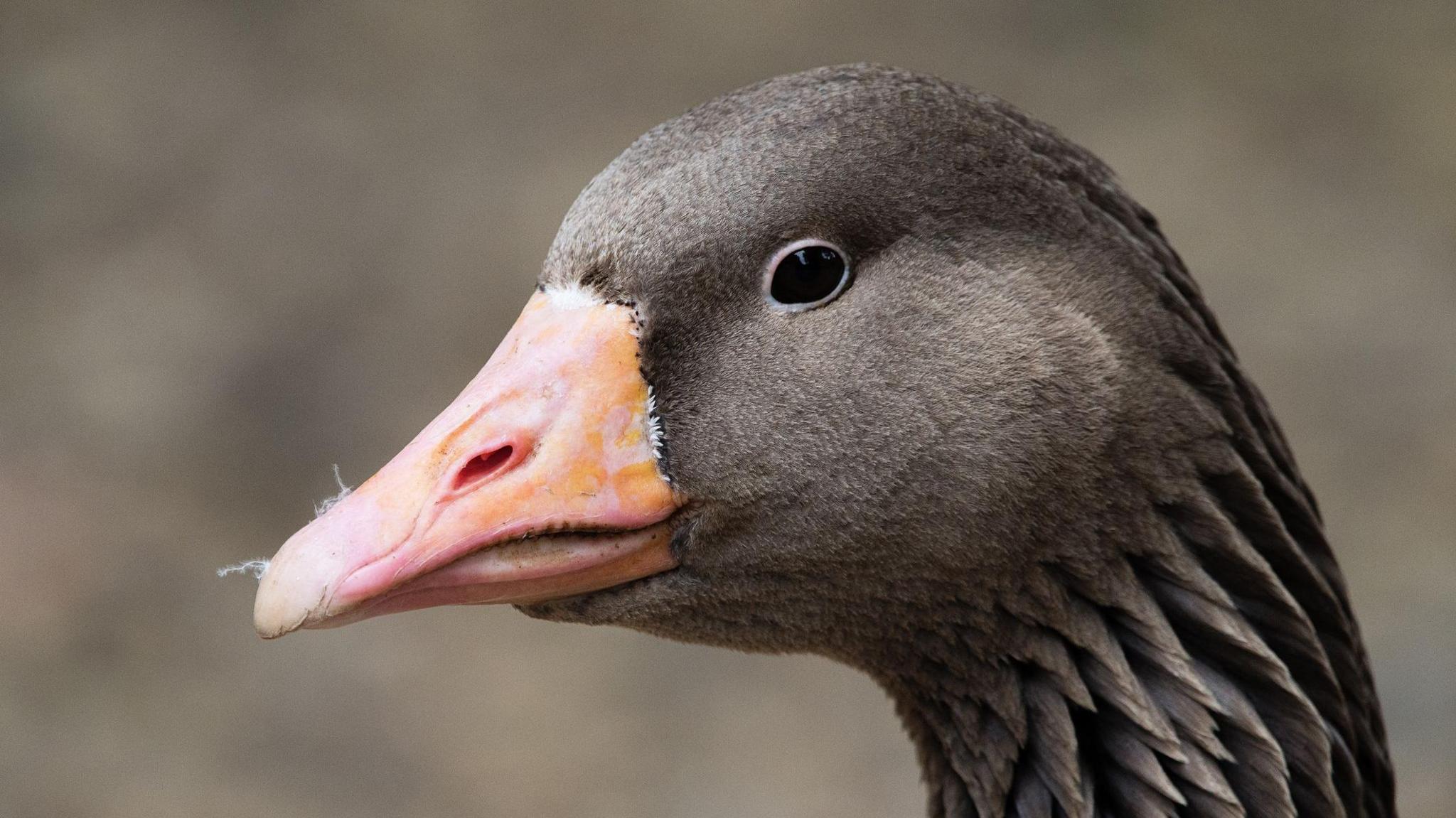
It is the first wild bird to test positive in Northern Ireland since September 2023 - stock image
- Published
Bird flu has been confirmed in a wild goose, external found near Dungannon, a buzzard near Moira, and a whooper swan in Portballintrae.
The wild goose was the first wild bird to test positive in Northern Ireland since September 2023.
The bird was found near Black Lough, and the disease was confirmed on Thursday, with two further wild birds testing positive on Friday.
The Department of Agriculture, Environment and Rural Affairs (Daera) said that an Avian Influenza Prevention Zone (AIPZ) was put in place on Saturday.
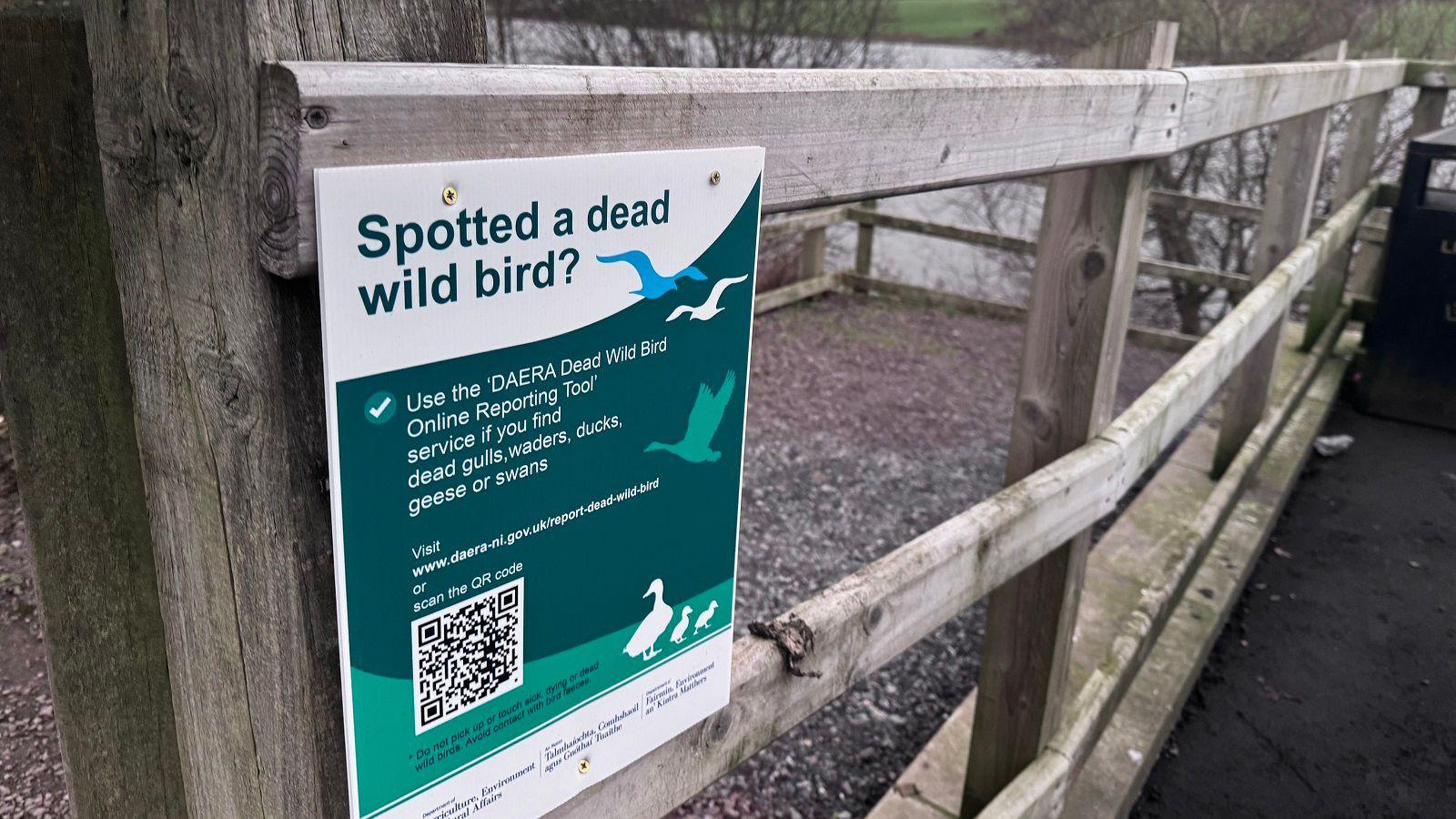
Signs at Black Lough in Dungannon
All bird keepers in Northern Ireland are now legally required to follow strict biosecurity measures.
This applies to people who keep pet birds, commercial flocks, or hobby flocks.
The Agriculture Minister Andrew Muir said that all flock keepers should "take immediate action on biosecurity and good farm practice" to reduce the risk of incursion of avian influenza into the Northern Ireland poultry flock.
"Poultry and egg production contributes significantly to the economy, and is valued at over £600 million, it is vital that we protect this industry", he added.
A biosecurity checklist is available on the Daera website, external.
The disease poses a huge risk to the local poultry sector, which is worth around £0.5bn a year to the Northern Ireland economy.
There has not been an outbreak in a commercial setting in Northern Ireland since December 2021.
Chief Veterinary Officer for Northern Ireland Brian Dooher said owners must implement "stringent" measures to prevent the spread of the disease, including ensuring that poultry or other captive birds are provided with food and water to which wild birds have no access and mandatory rules on cleansing and disinfection.
He added that there is currently no requirement for poultry to be housed, and bird gatherings are not prohibited at this stage.
"This will be kept under constant review", he added.
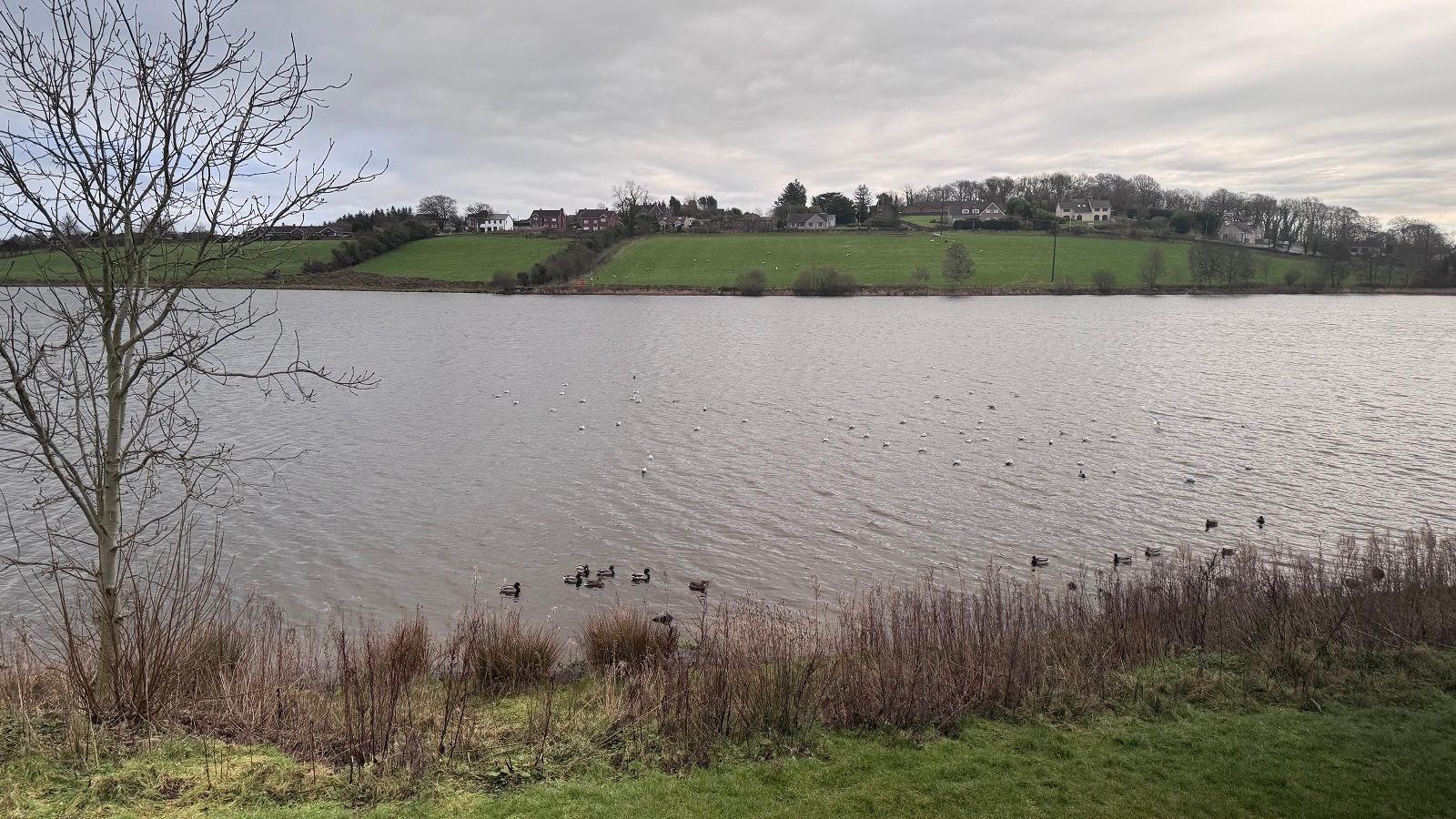
Black Lough in Dungannon
Although restrictions were eased in April 2023, strict biosecurity protocols have remained in place.
In December 2024, the highly contagious virus was detected in a dead wild buzzard found in County Galway.
It was the first confirmed discovery on the island of Ireland since September 2023.
- Published10 December 2024
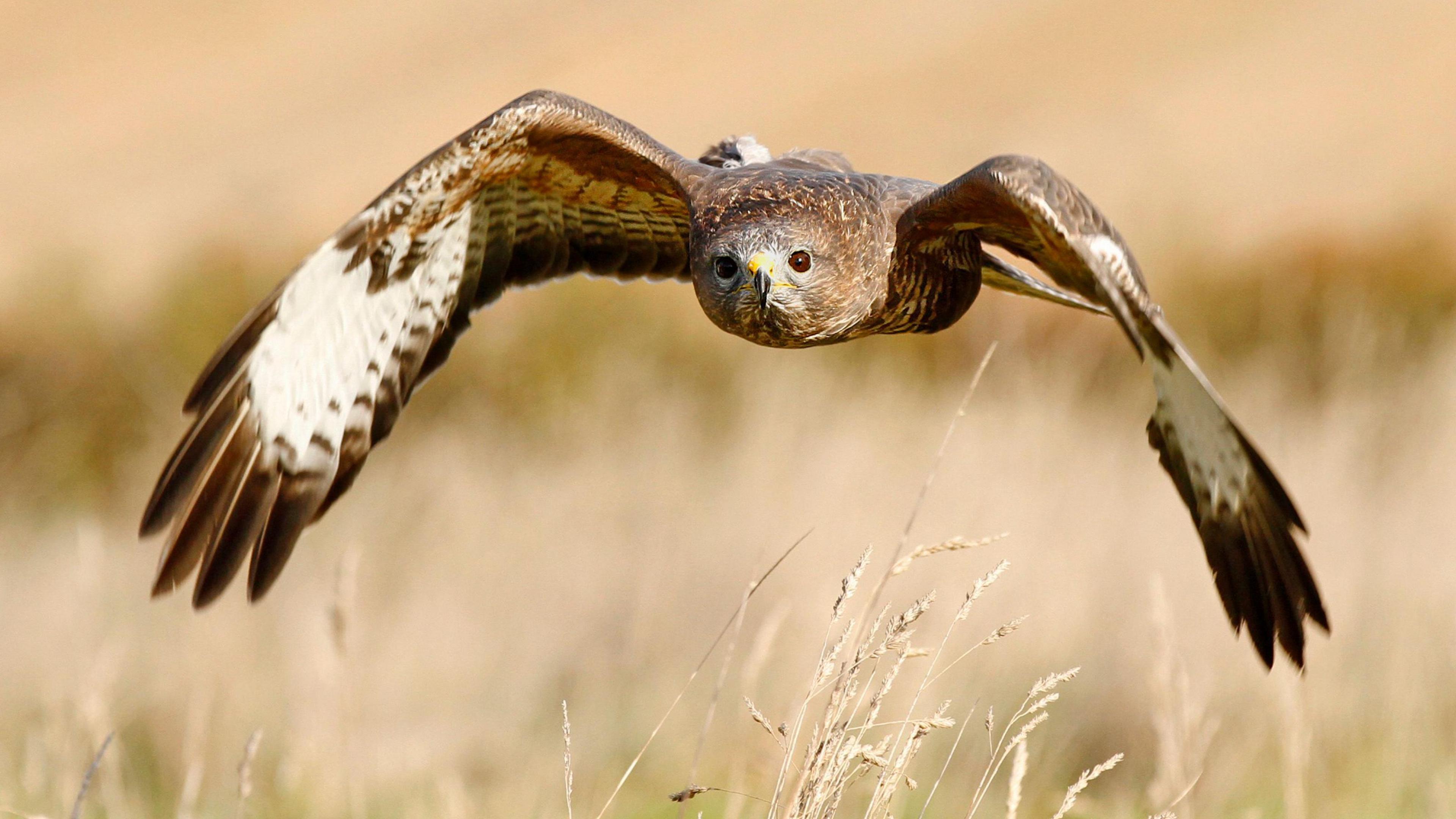
- Published28 July 2023
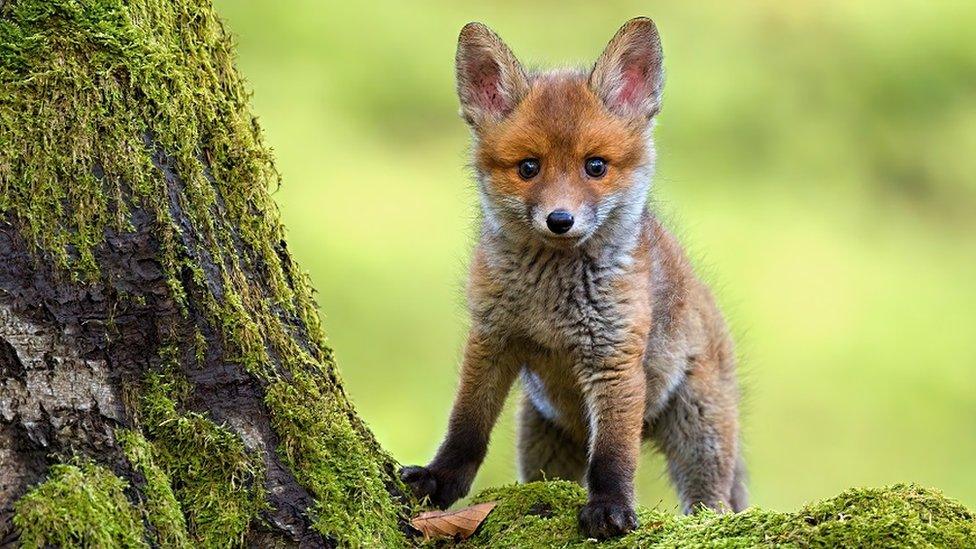
- Published14 February 2024
